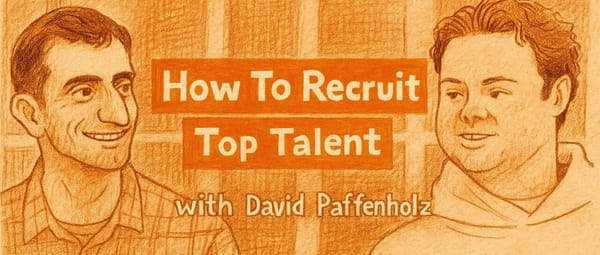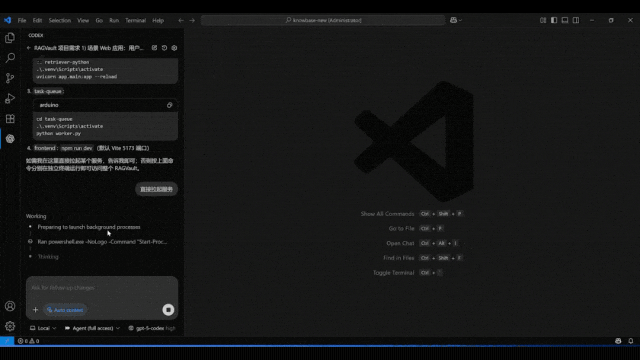Touch Some Grass: Meaning, Origins, and How to Use It Without Being Rude
Learn what touch some grass means, its origins, and how to use it without being rude. Get tone tips, kinder alternatives, and quick reset ideas.
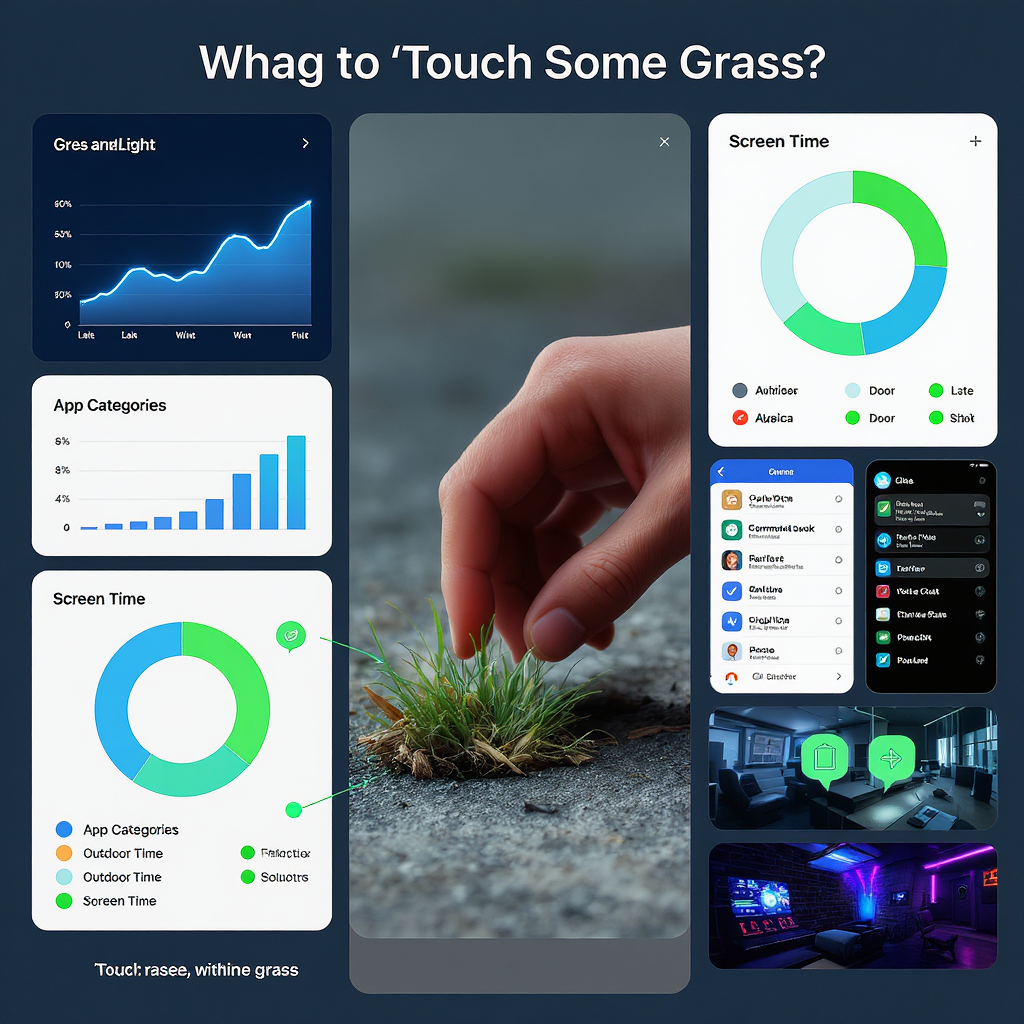
This guide unpacks the phrase “touch some grass,” a meme-born nudge that suggests stepping away from the internet to regain perspective. It explains where the expression came from, how tone and context shape its impact, and when to use kinder, more inclusive alternatives. You’ll also find examples, etiquette tips, and practical resets for when someone says it to you—or when you need a break yourself.
“Touch Some Grass” in a Nutshell
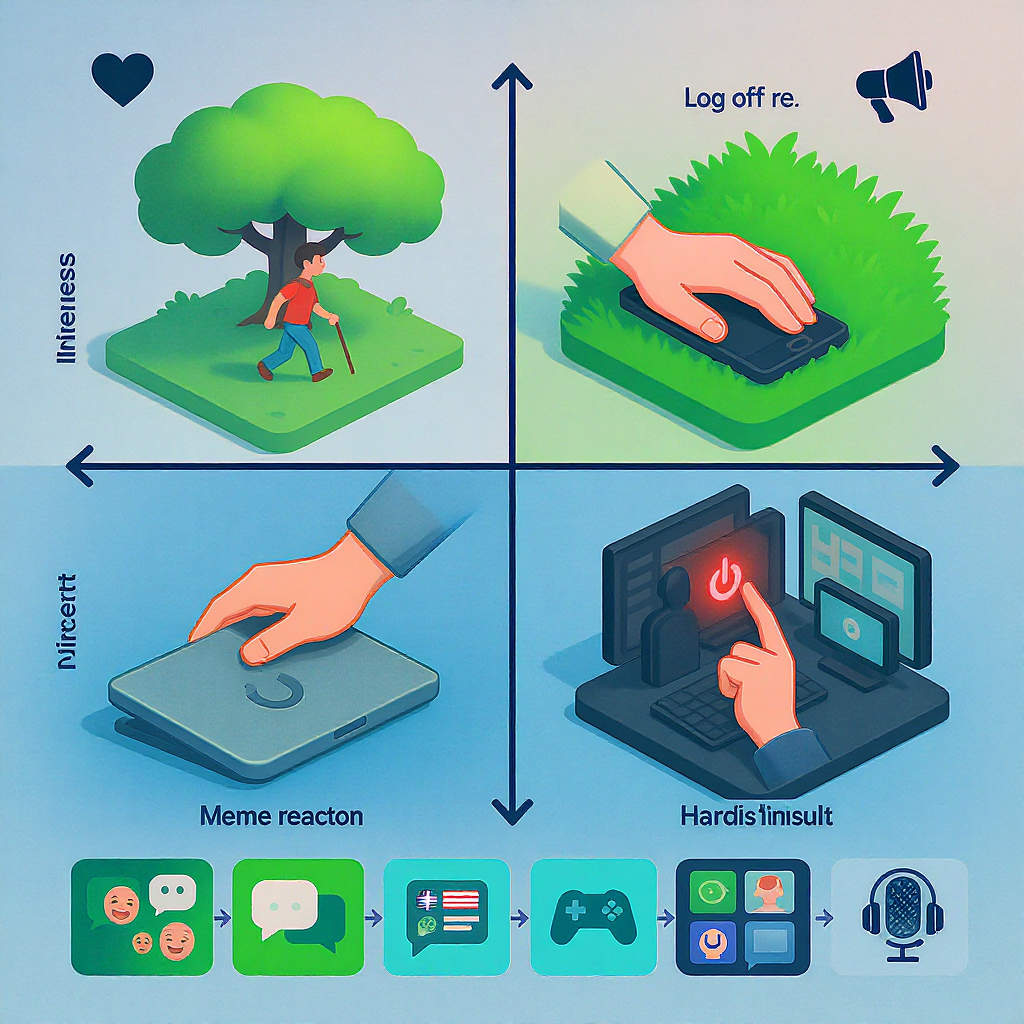

“Touch some grass” is internet shorthand for: you’re too online right now—log off, get some perspective, then come back. The touch some grass meaning mixes a joke with a gentle nudge: it’s a quippy way to tell someone to take a break from the feed. Depending on tone and context, it can land as a playful roast, a helpful reminder, or a dismissive insult.
At its best, it says: step away from the screens and reset. At its worst, it shuts people down or belittles their feelings. The phrase rarely means literally “touch a lawn,” but rather “touch reality,” “step outside,” or “change context.”
Where It Came From: From Meme to Mainstream
“Touch grass” and “touch some grass” bubbled up in meme culture through platforms like Reddit and Twitter/X, with major amplification around 2020–2021. Why the spike then?
- Lockdown-era screen time soared, leading to widespread “doomscrolling.”
- Online discourse got hotter—politics, fandom wars, and pandemic news fed burnout.
- TikTok and Twitter popularized the comeback line as a compact clapback.
- Gaming and stan subcultures embraced it as a status-check: are you too invested?
By 2021, the phrase was everywhere—from comment sections to brand accounts (sometimes awkwardly). The core appeal is how instantly it frames the problem: not your opinion per se, but the intensity and context in which you’re expressing it.
Where You’ll Hear It
- Gaming chats and esports streams: after tilted plays, trash talk, or meta debates that turn personal.
- Stan culture and fandom threads: when someone spirals over charts, shipping drama, or artist feuds.
- Political threads: when arguments turn absolutist or conspiracy-laden.
- Heated comment sections: on TikTok and Instagram, especially when pile-ons start.
- Niche communities: crypto Discords, speedrunning forums, sneaker drops—anywhere hype meets scarcity.
Tone Spectrum: Playful Roast to Contemptuous Put-Down
Tone determines how the phrase lands:
- Playful ribbing: said among friends with mutual trust, accompanied by emojis or obvious humor.
- Concerned nudge: “hey, maybe touch some grass?” as a care signal to log off.
- Dismissive clapback: used to shut down debate without engaging points.
- Contempt or pile-on: weaponized by groups to dogpile, often escalating conflict.
Signals to watch:
- Relationship: familiar vs stranger.
- Stakes: trivial debate vs personal or vulnerable topic.
- Power dynamics: moderator vs member, many vs one.
- Nonverbal cues: emojis, “lol,” softened language vs harsh or mocking tone.
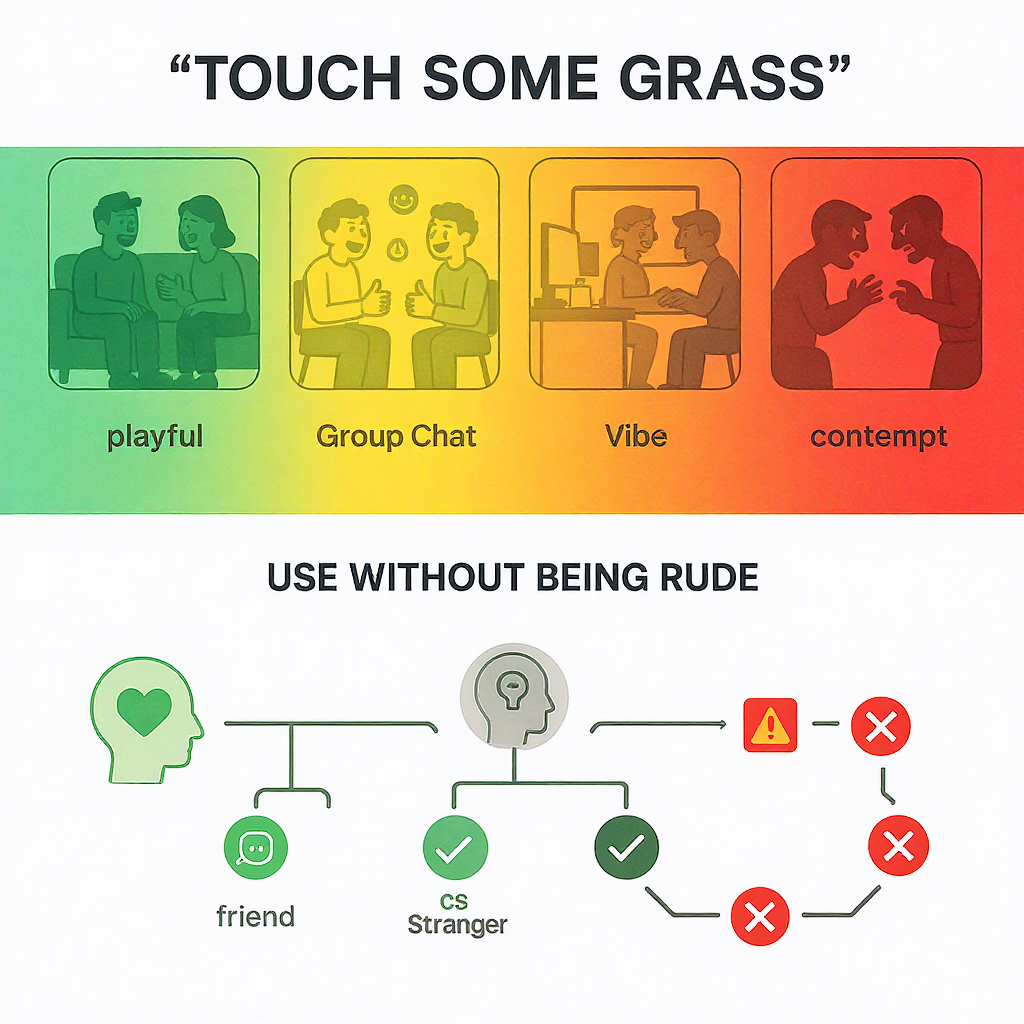
Similar Phrases and Subtle Differences
| Phrase | Default Tone | What It Implies | When It Fits | Notes / Safer Framing |
|---|---|---|---|---|
| touch grass | Roasty, meme-y | You’re too online; take a break | Low-stakes banter with friends | Can feel dismissive to strangers; add warmth or context |
| touch some grass | Similar, slightly softer | Lighthearted nudge to reset | Casual chats; non-serious debates | “Some” can soften the bite but tone still matters |
| log off | Neutral to curt | Take a screen break | When arguing isn’t productive | “I’m logging off” models behavior without policing others |
| go outside | Neutral, literal | Get fresh air/sunlight | Wellness-focused contexts | Be mindful of mobility, weather, and safety constraints |
| get some fresh air | Softer, caring | Regulate emotions; change scenery | De-escalation moments | Often better received than meme phrases |
| go offline | Neutral, techy | Disconnect intentionally | Professional or moderated spaces | Pairs well with time-bound suggestions (“for an hour”) |
Examples in Context: Good, Meh, and Don’t
Appropriate, friendly use:
- A: You’ve been arguing about patch notes for 3 hours.
- B: True. I need to touch some grass and drink water. Brb.
- A: Good call, see you later.
Borderline but okay with tone cues:
- Friend 1: Bro, you’re doomscrolling again.
- Friend 2: lol yeah… okay okay, I’ll touch some grass.
Inappropriate (shutting down vulnerability):
- OP: I’m having a rough mental health day.
- Reply: Touch grass.
- Why it’s off: Minimizes someone’s pain and can be harmful.
Better alternative:
- Reply: Sorry you’re going through that. Want to take a break together and check in later?
Debate de-escalation:
- User 1: You’re all clueless, it’s a conspiracy.
- User 2: I’m tapping out for now—going offline for a bit. Happy to revisit later with sources.
Gaming tilt:
- Player A: Lag ruined my rank. This game is rigged!
- Player B: Tilt’s real. Quick reset? Water and a 10-min break—queue after.
Moderation scenario:
- Commenter: [heated rant]
- Mod: Thread’s getting hot. Please cool off. Take a short break and revisit our rules before posting again.
Cultural Backdrop: Screen Fatigue, Doomscrolling, and Digital Wellness
The phrase resonates because it names a common feeling:
- Endless feeds and breaking news overload attention and emotion.
- Algorithmic outrage incentivizes performative intensity.
- Pandemic isolation blurred work-life boundaries; “always on” became the default.
- Wellness trends (dopamine detox, digital Sabbaths) argued for intentional offline time.
“Touch some grass” became a meme-y shorthand for a genuine need: context switching, sunlight, movement, and social contact that recalibrate our nervous systems. It’s less about lawns and more about nervous-system hygiene.
Etiquette Guide: Use Without Being Rude
When not to say it:
- Discussions of mental health, grief, trauma, illness, discrimination, or safety.
- Power-imbalanced contexts (manager to employee, mod to user under pile-on).
- When the person has flagged boundaries or accessibility limits.
How to keep it kind:
- Lead with empathy: “This seems stressful.”
- Use “I” statements: “I’m taking a break,” not “You need to…”
- Offer opt-ins, not commands: “Want to pause for 10 minutes?”
- Provide concrete options: “Water break, stretch, or revisit tomorrow?”
- Consider inclusivity: “step away” instead of “go outside” if mobility, climate, or allergies are issues.
Quick scripts you can adapt:
I’m feeling heated, so I’m taking a short offline break. Back in an hour.
This convo matters, and I want to give it proper attention. Can we pause and return later?
I care about this, but my brain’s fried. Going to reset—water, stretch, fresh air. TTYL.
Happy to continue, but the tone’s getting sharp. Let’s cool off for 15 minutes.How to Respond If Someone Says It to You
Defuse, don’t escalate:
- Option 1: Acknowledge and redirect. “You might be right—I’ll take five.”
- Option 2: Set a boundary. “I’m stepping away; we can pick this up tomorrow.”
- Option 3: Ask for respect. “I’m open to feedback, but ‘touch grass’ feels dismissive.”
Mini-resets that actually help:
- Change posture: stand, stretch, shoulder rolls.
- Hydration + snack: stabilize energy.
- Light exposure: window, balcony, short walk if feasible.
- Breathwork: 4-7-8 or box breathing for two minutes.
- Sensory reset: cold water on wrists or face.
- Context change: switch rooms, silence notifications, grayscale your phone.
- Time-box: 10–20 minutes offline, then reassess.
If you can’t go outside:
- Open a window or look at a distant object to relax eye focus.
- Short mobility routine or chair yoga.
- Listen to one song with eyes closed to reset attention.
Quick FAQ
- Is it rude?
- It can be. Among friends it may read as banter; to strangers or in sensitive threads it often feels dismissive. Tone and context are everything.
- Is it ableist?
- It can be if it assumes everyone can “go outside” or “touch grass.” Use inclusive alternatives like “take a short break,” “step away,” or “reset for a bit,” and avoid directives tied to physical ability or environment.
- Does it literally mean touching grass?
- Not usually. It’s metaphorical for changing context, reducing screen exposure, and regaining perspective. Literal nature time can help, but it’s not required.
- Should brands use it in marketing?
- Generally no. It can sound condescending or out-of-touch, especially if your brand benefits from attention. If you must reference digital wellness, frame it positively and offer practical tips rather than telling audiences to “touch grass.”
- What’s the difference between “touch grass” and “touch some grass”?
- Minimal. “Touch some grass” can read as slightly softer or more playful, but delivery matters more than wording.
- Is there a respectful way to convey the same idea?
- Yes: “Let’s take a short break,” “I’m going offline for a bit,” “Want to pause and revisit later?” Adding empathy and options keeps it human.
Bottom Line
“Touch some grass” thrives because it captures a real need to disconnect and reset. Use it with care—ideally among friends and low-stakes contexts—and prefer empathetic, inclusive language when emotions or vulnerabilities are involved. The goal isn’t to win the internet; it’s to preserve your energy, your relationships, and your perspective.
Summary
“Touch some grass” is a meme-sized reminder to step back when online conversations run too hot. It can land as playful or dismissive, so lean on empathy, opt-ins, and inclusive phrasing—especially in sensitive contexts. When in doubt, model the behavior yourself: take a short break, reset, and return with perspective.


